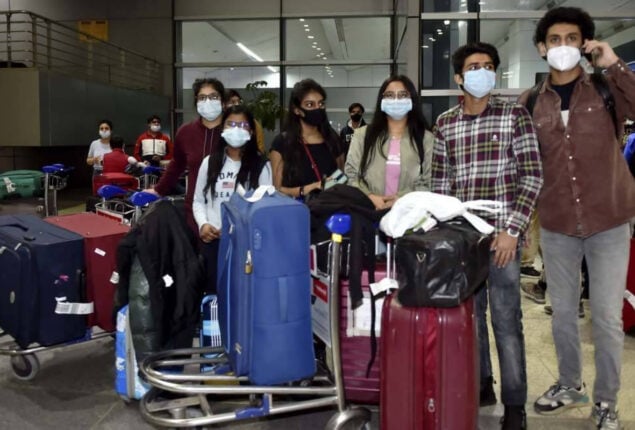Students wearing burqa denied entry in Indian college
A government college of India denied entry to the students who were...

Indian students expelled from Canada over forged papers
“My mind is dark. I cannot move forward, nor go back,” says Dimple K, an Indian woman who’s been living in Canada on a student visa since December 2017.
She is currently one of more than 150 Indian students who have received a warning from the Canadian Border Security Agency to leave the country (CBSA).
According to the CBSA, these kids entered the nation using fake college admissions letters.
The students insist that their immigration counselling service in India, which gave them the papers, tricked them and maintain their innocence.
Several people who received eviction notices are now hesitant to speak out out of fear of embarrassment.
Many Indian families, particularly those in Punjab, the state to which Dimple belongs, view living in a western nation as an issue of prestige.
Four years ago, 129 Indian students in the US were detained in a case quite identical to this one for enrolling at a phoney institution.
The reputed media outlet did not receive a response to emails it sent to the Indian high commission in Canada or the Canadian high commission in India.
Dimple is married and from the Jalandhar district’s middle class. She has three siblings; her parents are a housewife and a tailor, respectively.
She spent a lot of time trying to find employment in India as a post-graduate in science but was unsuccessful.
She applied for a student visa in Canada out of the desire for a better life with her husband.
She employed an immigration agency’s services to obtain a Canadian visa after learning about it from her cousin, which police claim has been closed for the previous seven months.
“The agency told me that one of the colleges had accepted my documents, and gave me the admission letter which they said was from the college,” she tells the reputed media outlet over phone.
Dimple gave the company 1.2 million rupees (£11,970; $14,525).
The money was used to pay her college tuition.
She was also given a certificate by the organisation demonstrating that she had enough money to cover her living expenses in Canada.
Yet, Dimple claims that the organisation warned her about a strike at her college just two days after she arrived in the nation.
To apply to another college, they urged.
Dimple obtained her work permit and her diploma in computer networking in December 2019.
However, she was told by Canadian authorities that her application contained a falsified document in May 2022, a year after she had submitted an application for permanent residency.
She received an exclusion order in January, which is often a directive to depart the country. Her instructions have been to leave Canada and stay away for at least five years.
She has appealed the decision in a Canadian federal court.
Around thirty pupils are being represented by her attorney, Jaswant Singh Mangat, in a situation like this.
He claims that in the majority of these situations, phoney admission letters were supplied for exorbitant costs.
They were employed to acquire visas.
Several of these students requested for work permits after completing their coursework and submitted applications for permanent residency.
The immigration division found out about the problems with their entrance documents at that point.
“Couldn’t immigration officials detect the documents were fake at the airport, or while issuing student visas, [so] how was I expected to find that out?,” asks Dimple.
The CBSA informed the reputed media outlet that it declines to comment on specific instances.
However, it was also noted that they “uncovered a system whereby unsubsidized private college courses were directing foreign students to a post-graduation work visa (for $25,000) with the sole intention of obtaining permanent residency” last year.
“This investigation led, on 7 June 2022, to the decision by the federal and provincial governments to tighten the criteria for granting post-graduation work permits.
The investigation targeted 11 colleges that were implicated in the fraud,” it said.
Many dreams have been dashed by the occurrence.
“We cannot take any legal action because we don’t have any proof against the the [Indian] agency which prepared our documents,” says Chamandeep Singh, a student from Punjab.
Inderjit Singh, a different Indian student, claims he would not return to his country because the falsified documents were not his fault.
According to experts, immigration agencies that defraud students ought to face stiff penalties from the Indian government.
They suggest that applicants should be more informed and search for licensed immigration agents.
“This is your money, your life, your future,” Mr. Mangat warns applicants.
Catch all the India News, World News, Breaking News Event and Latest News Updates on The BOL News
Download The BOL News App to get the Daily News Update & Follow us on Google News.